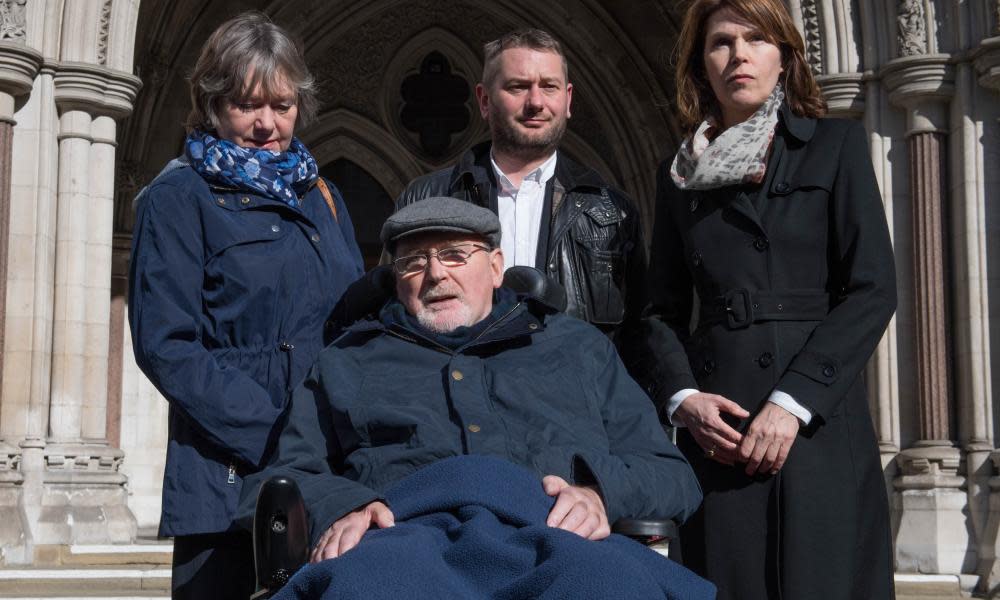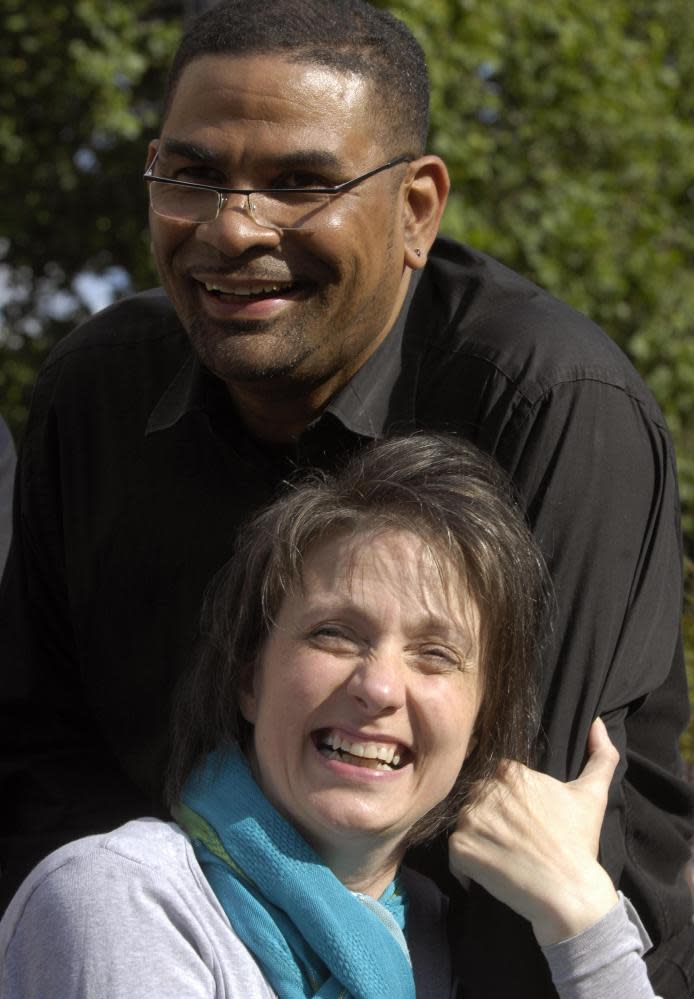Terminally ill men to hear if assisted dying ban will be reviewed

Two terminally ill men are expecting to hear this week whether they will be granted permission for a judicial review of the ban on assisted dying which, they say, prevents them from ending their lives without protracted pain.
Omid, a 54-year-old father of the three who lives in a north London care home, was diagnosed with multiple system atrophy (MSA), a neurodegenerative disorder that gradually impairs his body’s autonomic functions such as heart rate, bladder function and digestion. His speech is slurred, he has difficulty walking and most days he is confined to bed.
Omid, who does not wish to be identifed by his family name, is one of two claimants who launched a fresh legal battle last week. Assisted dying is prohibited by section 2(1) of the Suicide Act 1961 and voluntary euthanasia is considered murder under English and Welsh law.
The other claimant is a former lecturer, Noel Conway, 67, from Shrewsbury, who was diagnosed with motor neurone disease in November 2014. He is terminally ill and is not expected to live beyond the next 12 months.
Their different medical predicaments, however, mean that the three judges considering their applications – Lord Justice Burnett, Mr Justice Charles and Mr Justice Jay – are likely to deliver separate decisions.
Omid is trying to raise money through a crowd-funding website to fight his legal case. In a short video clip, he explains: “I just wake up in the morning and every day it’s the same thing. And there’s no future, there’s no hope. Nothing at all, nothing at all.”
In a written statement, he adds: “The law on assisted dying in the UK is cruel and unjust. It stops me, and many like me, from having a safe and painless death at home in England.
“I am determined before I leave this earth to do some good and try and change this cruel law that stops people like me dying peacefully at home. I am following in the footsteps of Debbie Purdy and Tony Nicklinson [previous right to die legal challengers], and that gives me courage.”
Suicide, Omid notes, is legal: “It’s just that I cannot end my life as I have lost control in my arms and hands. I could have several miserable years ahead of me. I have lost the will to carry on with a wretched existence without joy and pleasure. I cannot do anything for myself. What sort of life is this and who would want it?”
He was born in Iran and came to the UK aged 12 in 1975. He is now a UK citizen and worked as a property developer until around 2008 when he became ill. He married and has three children but is now separated from his wife. The first signs of his illness appeared when his speech became slurred. Next he found it difficult to walk.

In 2014, the supreme court ruled by a majority that while they did have the legal power to consider the ban on assisted dying, parliament should have the opportunity to consider the issue first.
Omid takes comfort from the words of Lord Neuberger, president of the supreme court and among those who backed the majority ruling, who said: “There seems to me to be significantly more justification in assisting people to die if they have the prospect of living for many years a life that they regarded as valueless, miserable and often painful, than if they have only a few months left to live.”
Omid’s lawyers – Saimo Chahal QC, a solicitor at the London law firm Bindmans, and Paul Bowen QC of Brick Court Chambers – represented Purdy and Nicklinson in earlier court challenges.
Chahal said: “Omid’s situation is deserving of compassion and sympathy from anyone who believes in the right to autonomy and dignity at the end of life. He is enduring unbearable pain and suffering and cannot speak clearly any more due to his condition of multiple system atrophy. His legal challenge, if successful, will change the law for the better for thousands of people – giving them a choice about when to end life. He needs support financial and moral if he is to succeed in his legal challenge
Omid has the support of Jane Nicklinson – the widow of Tony Nicklinson. She said: “I just want to thank Omid for continuing what Debbie and Tony started. It takes a great deal of courage to challenge our legal system. This is such an important issue that will not go away
“We must ensure that people who find themselves in a position similar to Tony and Omid have a way out of the life that will undoubtedly become unbearable. Nobody should have to suffer as Tony did. This could happen to any one of us and until you find yourself, or someone you love, in such a position it is hard to understand how the life you have is a living hell.”

 Yahoo News
Yahoo News 
